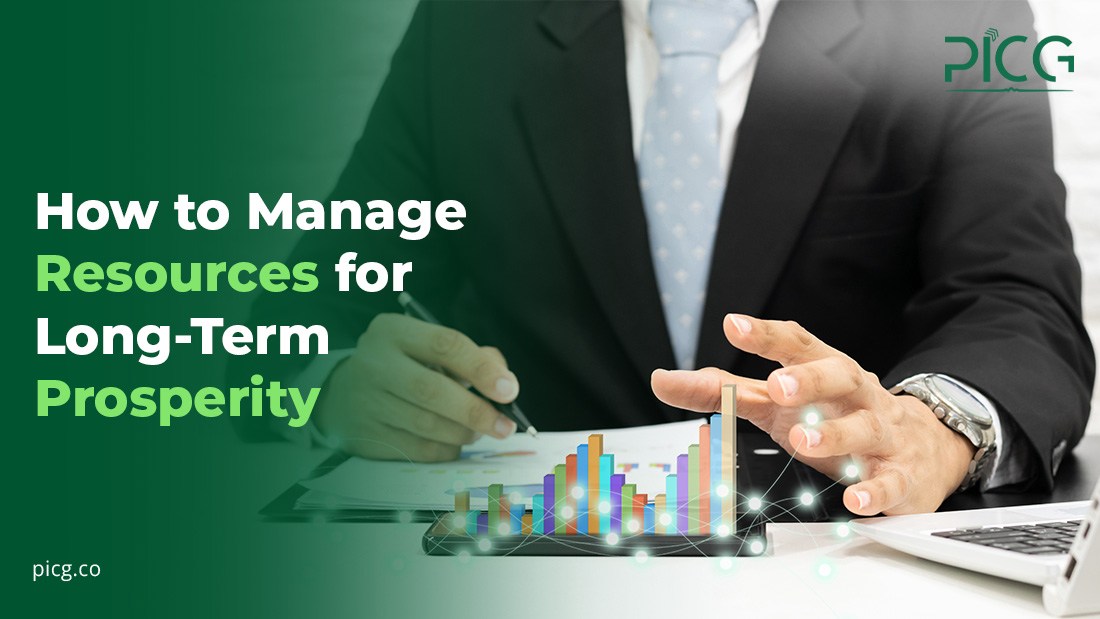


PICG

In a world where resources are finite and the environment is facing unprecedented challenges, managing resources wisely has become crucial for long-term prosperity. Whether you are an individual, a business owner, or a community leader, adopting sustainable practices can pave the way for a brighter and more resilient future. Let's explore some simple yet effective strategies to ensure the responsible management of resources for sustained success.
The traditional linear economy follows a "take, make, dispose" model, which is unsustainable in the long run. Embracing a circular economy, on the other hand, promotes a regenerative system where resources are reused, refurbished, remanufactured, and recycled. Businesses and organization can contribute by prioritizing products designed for durability, recycling materials, and supporting initiatives that minimize waste.
Conserving energy not only reduces utility bills but also minimizes the environmental impact. Simple steps like using energy-efficient appliances, turning off lights when not in use, and investing in renewable energy sources contribute to long-term resource management. For businesses, adopting energy-efficient technologies and practices not only lowers operational costs but also enhances their reputation as environmentally responsible entities.
Water scarcity is a growing concern globally, making responsible water management a priority. Individuals can reduce water usage by fixing leaks, using water-saving appliances, and being mindful of consumption. Businesses can implement water recycling systems and invest in technologies that optimize water usage in production processes. Community leaders can play a role by promoting water conservation initiatives and investing in sustainable water infrastructure.
For communities and individuals, making informed choices about the food they consume can have a significant impact on resource management. Supporting local farmers who use sustainable and organic farming practices helps preserve soil health and biodiversity. Additionally, reducing meat consumption and opting for plant-based alternatives contribute to a more sustainable and resource-efficient food system.
In a world driven by consumerism, adopting a more mindful approach to consumption is essential. Before making a purchase, consider the product's lifespan, its environmental impact, and whether it aligns with your values. Opt for quality over quantity, support companies with sustainable practices, and explore second-hand options to extend the life cycle of products.
Effective resource management requires collaboration and innovation. Businesses can collaborate with suppliers, competitors, and other stakeholders to find innovative solutions that benefit everyone. Communities can come together to share resources, implement conservation projects, and address local environmental challenges. By fostering a culture of collaboration and innovation, we can find sustainable solutions to complex problems.
Managing resources for long-term prosperity is a collective responsibility that requires individuals, businesses, and communities to adopt sustainable practices. Embracing a circular economy, prioritizing energy efficiency, practicing responsible water management, promoting sustainable agriculture, adopting mindful consumption habits, investing in education, fostering collaboration and innovation, and planning for resilience are key strategies to ensure a more sustainable and prosperous future. By taking small steps today, we can collectively create a positive impact on the environment and build a legacy of responsible resource management for generations to come.